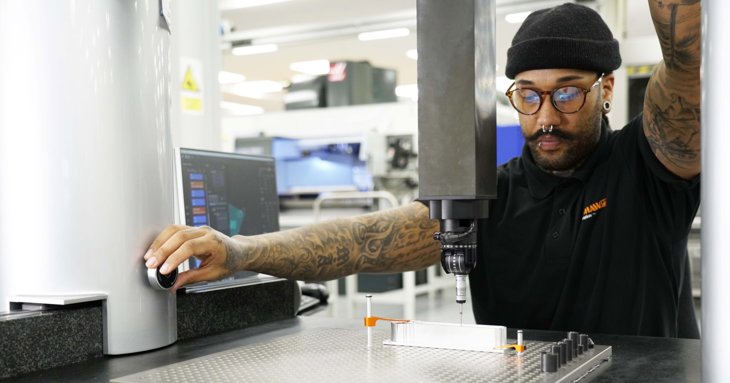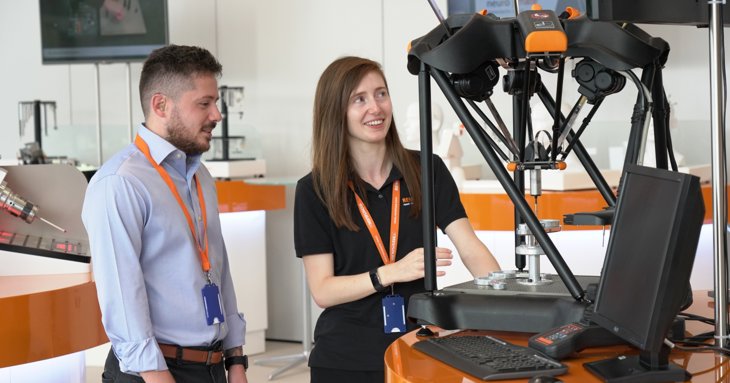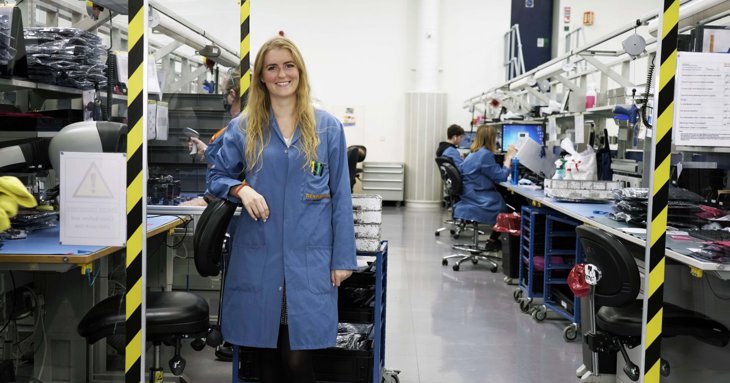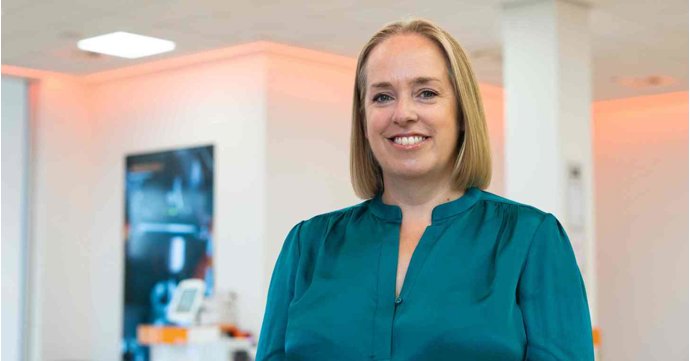On the eve of its annual recruitment campaign, Julia Russell, from county engineering success story Renishaw, speaks to SoGlos about why apprentices remain at the heart of the firm's plans, and just how many apprenticeships the Gloucestershire business hopes to unveil in 2023.
The firm has teamed up with Gloucestershire College, Gloucestershire Engineering Training and SGS College as part of the SoGlos Gloucestershire Apprenticeship Campaign to promote the route to work in the run-up to National Apprenticeship Week (6 to 12 February 2023).
Next year is important for Renishaw for a number of reasons. Can you explain?
Next year we will be celebrating our 50th birthday. Apprentices and apprenticeships have always been part of the culture here. It is embedded in the business and the business is very good at looking after its people, where it can help them and where can it benefit from them in the future.
We will be adding the latest positions to the website soon, but we can now confirm there will be 63 apprenticeship opportunities for 2023. We will post the dates of the apprenticeship open evenings on our website too. All the positions will go live for applications from early December and we will promote them through to National Apprenticeship Week in February next year.
Why the commitment and belief in apprenticeships?
In the past, when there have been difficult times, we have always continued to take on apprentices and graduates. We understand it is not about the here and now. It's about staying ahead - and that is easier if people have the right skills to do the job in a couple of years' time.
Renishaw is very future looking. We play the long game. We need people now, but we also need to think about the future of the business. It is always about the people.

How many apprentices and graduates does the firm have currently?
We have around 400 people in the business on some kind of early careers programme. That’s about 12 per cent of our UK workforce. It is massive. But it is not so much about the quantity, what we want to communicate is it is about the quality of the experience they will have here.
Is it all about engineering apprenticeships?
We have apprenticeship schemes from level three to level six. We have engineering, of course, but we also have construction and maintenance because our sites are so big. We have people come to us as electricians, plumbers, site supervisors. We also offer commercial, digital, software and IT schemes.
We design all the schemes so we can give the very best opportunities and experience and we want people to become the very best they can be.
Renishaw is a global engineering and manufacturing success story serving diverse sectors from aerospace to medical and way beyond. Surely recruiting is easy?
I think recruitment always has its challenges. Through the pandemic we were not able to go into schools and that is such an important part of recruiting – speaking to pupils so they know about the opportunities – and we are still coming back from that legacy.

Renishaw strives for a diverse workforce, with career paths for all. How is it doing?
We have an increasing focus on diversity and inclusion, including a dedicated group that we set up a few years ago. We are making progress, but there is much more that we could be doing.
Some of the message is lost somehow as young people grow up. At primary school age they understand they can do anything they want, but at some point they begin to think only certain people can do engineering, for example.
We have tried lots of different approaches, and seen how some of other firms have tried to approach recruiting young women, for example, and we have decided to simply focus simply on recruiting and underlining it is a profession open to all and that you can rise through the company and build a good career for yourself if you have the will and the skills, no matter who you are.
Alongside this, our education outreach team is working hard to ensure there are a diverse pool of young people who maintain an interest in engineering and are applying for jobs.
What about age?
For apprentices, there is no upper age limit. For a degree apprenticeship they will need A-levels or equivalent; for a level two we have more flexibility, but it is also about the potential we see in someone. That is the key. It is about values and behaviours. Have they got the right attitude? Have they got a good work ethic? It is hard work, we ask a lot, but it is rewarding.
No one should be put off, whatever their qualifications, race, gender or age. A lot of people talk themselves out of applying. We have good schemes, and we have high standards, but that should not put people off. We want to hear from everyone and would encourage everyone who is interested to go ahead and apply.

Are you still competing for the message to be heard over the narrative that 'university is best'?
What we would say is people need to first ask themselves what they want out of the next step and to have an open mind. It is not just the case that you have to have a degree to do well - you don’t.
You can do a higher-level apprenticeship, you can build your career around engineering and progress through to degree level with the business financing that.
With an apprenticeship you are learning from day one and you are not accumulating any debt. You are gaining understanding and skills for the here and now and for the future. It will be a challenge, but you are picking up so much more; professional skills, values and the benefit of working with people in the business who are passionate about the development of your career.
I think people do understand it is not all about university and I think they now understand this is not a ‘second choice’, an apprenticeship is an equal choice.
How long does it take?
It depends entirely on the scheme and on the person doing it. For example, a level three scheme would take three and a half years, but we can also help speed them through it. It is up to them how much they commit to that. A degree will be four years to five years. Again, depending on how much they are able to or want to push themselves.
How much will you earn as an apprentice?
It depends entirely on the scheme people come in on. Some go to college, some start on site. Degree apprentices transfer onto a salary the same as a graduate, they get parity. The lowest starting wage would be £16,000, but we are always reviewing what we offer as we want to attract the best staff we can.
The key thing for people to realise is that being an apprentice is a job - a paid job while you are learning. They get all the rights an employee gets, plus compared to someone in full-time study, they get added benefits like paid holidays and the valuable experience of working with other skilled and knowledgeable people while they qualify.
In partnership with

Helping more than 700 apprentices in Gloucestershire qualify each year in sectors ranging from catering to computing, Gloucestershire College cultivates strong relationships with businesses of all sizes to understand what they need and to support students through to a successful career. gloscol.ac.uk

Founded in 1977 by a partnership of county businesses, Gloucestershire Engineering Training provides apprenticeship training for the county’s best and most innovative engineering firms and continues to support apprenticeships as a route to work and career development. get-trained.org

Globally successful engineering firm Renishaw was founded in 1973 by two former engineering apprentices and works across a wide variety of sectors, including aerospace, automotive and healthcare. Renishaw continues to show dedication to apprenticeships at all levels, too. renishaw.com

SGS College has forged strong links with businesses and helps train hundreds of students annually at levels two, three, four and higher, in everything from accounting and finance to business administration, carpentry, joinery, education and childcare, gas engineers and installation electricians, construction, teaching, HR, customer services and more. sgscol.ac.uk





















